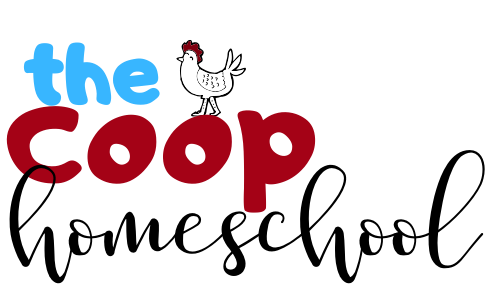Homeschool Glossary
Are there terms you hear thrown around in the homeschool community but aren’t sure what they mean? We’ve got you covered!
Boxed Curriculum - comprehensive program providing grade leveled scope and sequence, textbooks, assessments, projects and timelines with very specific, day by day instructions to both parent and student
Charlotte Mason - based on the teaching of Charlotte Mason, a 19th century homeschooling pioneer. Charlotte Mason focuses on short study periods, nature studies, memorization, and reading - especially “living books.”
Charter - a publicly funded school that operates as a school of choice independently of state school system. Charter Schools can meet 5 days per week like a traditional school, on a hybrid in class and at home schedule, or can be a full time homeschool charter
Classical Education - one of the most popular homeschool styles, which often employs “Great Books” and the “Applied Trivium into a chronological reading plan to study subjects areas historically. Often included are Greek and Latin learning.
Co-Op - a group of homeschool families that have organized meetings. Some are formal co-ops where the parents alternate teaching lessons to the group. Others are less formal and meet for playdates, field trips and other educational opportunities
Curriculum - the materials use to teach a subject course: textbooks, lesson plans, tests, worksheets, or online resources
Deschooling - the period of time a child (and parent) need to adjust going from traditional schooling to homeschooling
Eclectic - the most popular method of homeschooling and is often called “relaxed homeschooling.” Eclectic homeschoolers may pull from many other methods as the main objective is to educate their own individual child rather than to ascribe to a method.
Enrichment - classes or programs provided by other teacher or educators to offer electives or extracurriculars to homeschool families
Homeschool Method - the approach for education at home. Methods include: Charlotte Mason, Classical, Montessori, Unschooling, and more
IEP: Individualized Education Plan - a legal document written as a map that lays out the program of special education instruction, services, and support that some students require
Learning Styles - the various ways in which students take in information and prefer to learn. Examples include: auditory, visual, kinesthetic
Micro-School - a recreation of the classroom aspect of traditional school by hiring a qualified educator to teach specific subjects to a small group of students
Montessori - a humanistic student-based approach to learning developed by Maria Montessori in the 20th century. This method utilizes large-unstructured time blocks, free movement, multi-grade teaching, and individualized learning plans.
PSA: Private School Affidavit - a form filed with the state and/or school district to claim your home a private school in which you will provide home instruction
Reggio Emilia Approach - a student centered approach that uses self-directed, experiential learning in relationship-driven environments.
School-at-Home - this model is basically taking to traditional school approach and implementing it at home. If is often centered around complete curriculum packages based on grades and school years.
Supplemental Resources - any non-required instructional materials
Traditional School - a term that refers to public, private, or parochial schools and classrooms
Unit Study - theme based, educational studies that use the theme to teach multiple subjects, usually in a very hands on way
Unschooling - a student-centered, free-form learning model based largely on the work of John Holt. Unschooling is unconventional and individualistic and encourages a learn-as-you-go education.
Waldorf Education - is a philosophy that strives to develop artistic, intellectual, and practical skills in students in a holistic manner.
